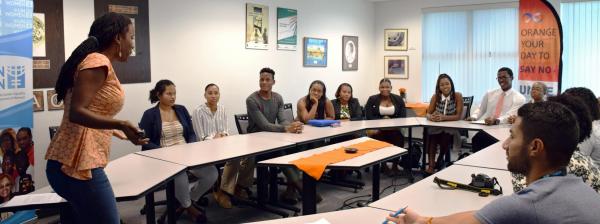Did you hear about the Canadian girl who was thrown in jail in Greece for picking up a rock at the Parthenon? A security guard saw her, called the police and they arrested her. She was charged with illegally possessing antiquities. What about the woman from Victoriaville, Quebec who was arrested and jailed in Mexico for taking part in an anti-globalization rally? She spent a few pleasant days finding out how Mexican cops treat their inmates.
Most of us are vaguely aware that things often work differently in other countries - after all, that's why we travel - but according to Foreign Affairs Canada, few of us bother to find out just what those differences are before we leave home.
For example, did you know that if you get in a car accident while driving in Cuba, you're essentially guilty until proven innocent? They'll throw you in jail until the trial date is set, a process that might take months. Or did you know that in Malaysia, Thailand or Indonesia, if you get caught with drugs they might very well sentence you to death? Or that if you're a dual citizen of Canada and Singapore (or a number of other countries), you might be detained there on a visit and forced to complete your mandatory military service?
The "Duh Factor"
Lucie Chantal, director of consular communications for the Department of Foreign Affairs says that the best tool for staying out of travel trouble is prevention. Don't try to bring drugs into the United States. Don't try to climb a mountain without the proper equipment. Don't join a politically charged rally in Mexico. "If you get a cheap deal to fly to Florida during the hurricane season, then ultimately you're responsible for having made that decision to travel," says Chantal.
Prevention also means finding out as much as possible about the place you want to visit. Take some time to fill yourself in on the political and economic situation, learn something about the culture, and try to learn at least some key phrases in the native language. You can also check out the Country Travel Reports on the Foreign Affairs website.
Something to keep in mind: if you do run into trouble, Canada's Department of Foreign Affairs will do everything in their power to help you, but their power is not absolute. If you get arrested, for example, they will try to make sure you're given food, water and legal council, but they can't bail you out and they can't override the local authorities and bring you back to Canada to stand trial.
"We want people to know they are responsible for the decisions they make," Chantal says. "If they run into trouble, then we are there to help; but ultimately they are responsible."
Leave a trail
When the tsunami hit Thailand and Indonesia on Boxing Day, 2004, the lines lit up at the Department of Foreign Affairs. Hundreds of people were trying to get news about friends or relatives, but most of the callers had little information about the people they were trying to track down—they didn't know where they were staying, they didn't know their passport numbers, often they didn't even know their dates of birth, Chantal says.
Before you head out, the best thing you can do is tell somebody where you're going and provide them with as many details about your itinerary as possible. That way, if something does happen to you, the people trying to find you will at least know where to start looking.
Foreign Affairs also recommends that you register your plans with them if you intend to be out of Canada for more than three months or are travelling for any length of time in higher-risk countries. The system for this is called, ROCA, or Registration of Canadians Abroad. You can register online at www.voyage.gc.ca. And don't forget to inform Foreign Affairs when you have returned to Canada, or in the event of calamity, they could be sending out searchers needlessly and at great cost.
It happens
If you do happen to find yourself in the middle of a war or a natural disaster, and consular officials manage to track you down, Chantal explains, they will encourage you to leave the country. In some situations, as a last resort, they will arrange an emergency evacuation. They can also help to arrange medical treatment or a medical evacuation. All of this costs and you'll be required to sign an "undertaking to pay", so make sure you have adequate travel insurance.
Margaret Bodie-Collins, Travel Medicine Advisor for Canada's Public Health Agency says that planning for medical risk means a lot more than just getting your shots. The sorts of medical emergencies you might encounter will vary, depending not only on where you are travelling, but on how you travel. "The fact of the matter is that any two travellers may have very different risks," says Bodie-Collins. "Imagine going on a safari versus going to stay in a hotel."
She recommends that all Canadians get an individual risk assessment before they leave the country; visit a travel clinic to find out what steps you need to take to avoid medical emergencies. The public health agency offers medical advice for Canadian travellers on its website.
There are Canadian consular offices in 180 different countries around the world, and in places where there are no offices, Canada has a resource-sharing arrangement with the UK and Australia. There's also an emergency operation centre in Canada with a telephone number that travelers can call 24 hours a day, seven days a week if they need assistance. Consular officials can also help you by contacting friends or relatives back home in Canada on your behalf.
Read more:
5 Tips for Safer Travel



